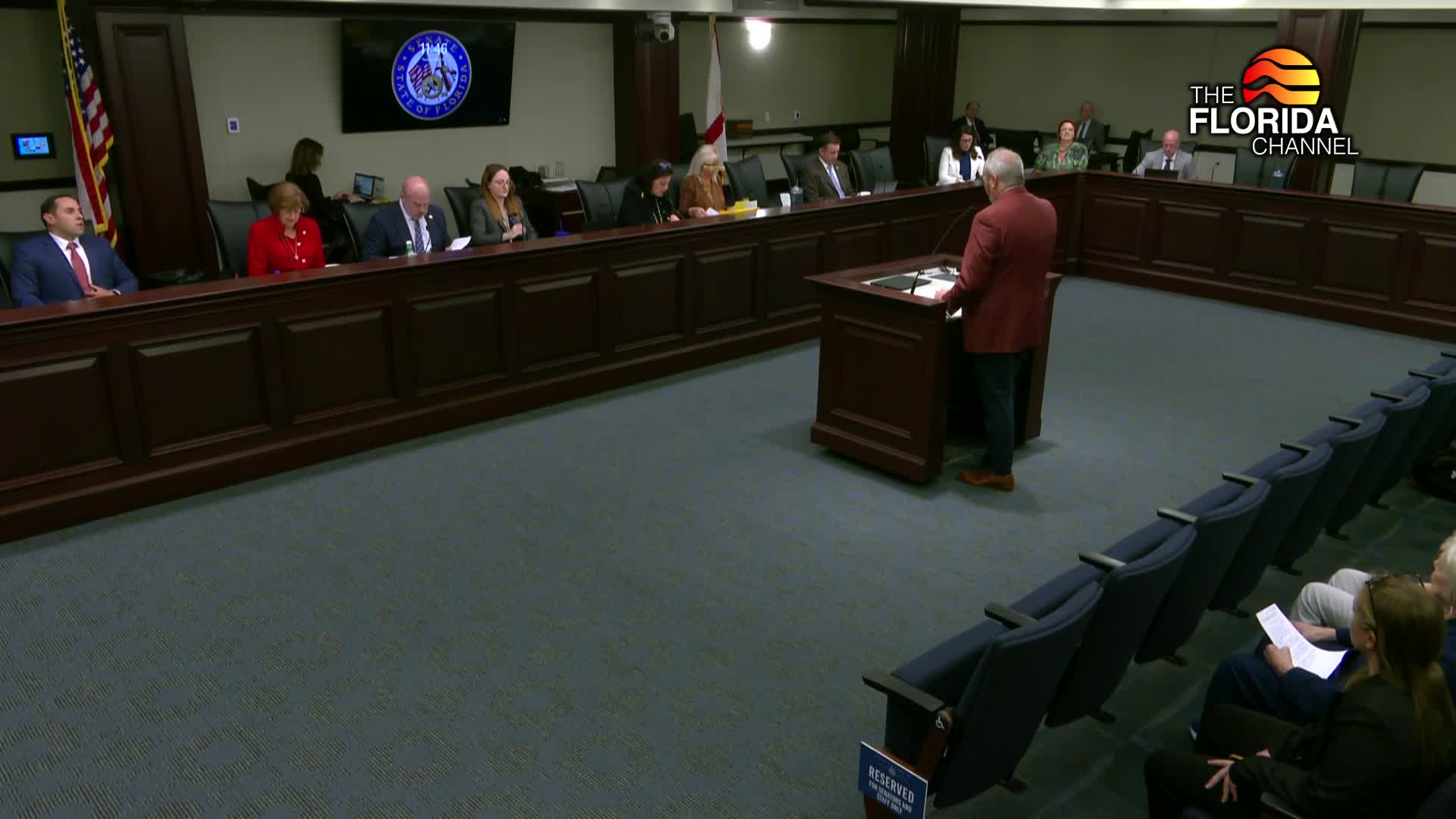Article not found
This article is no longer available. But don't worry—we've gathered other articles that discuss the same topic.
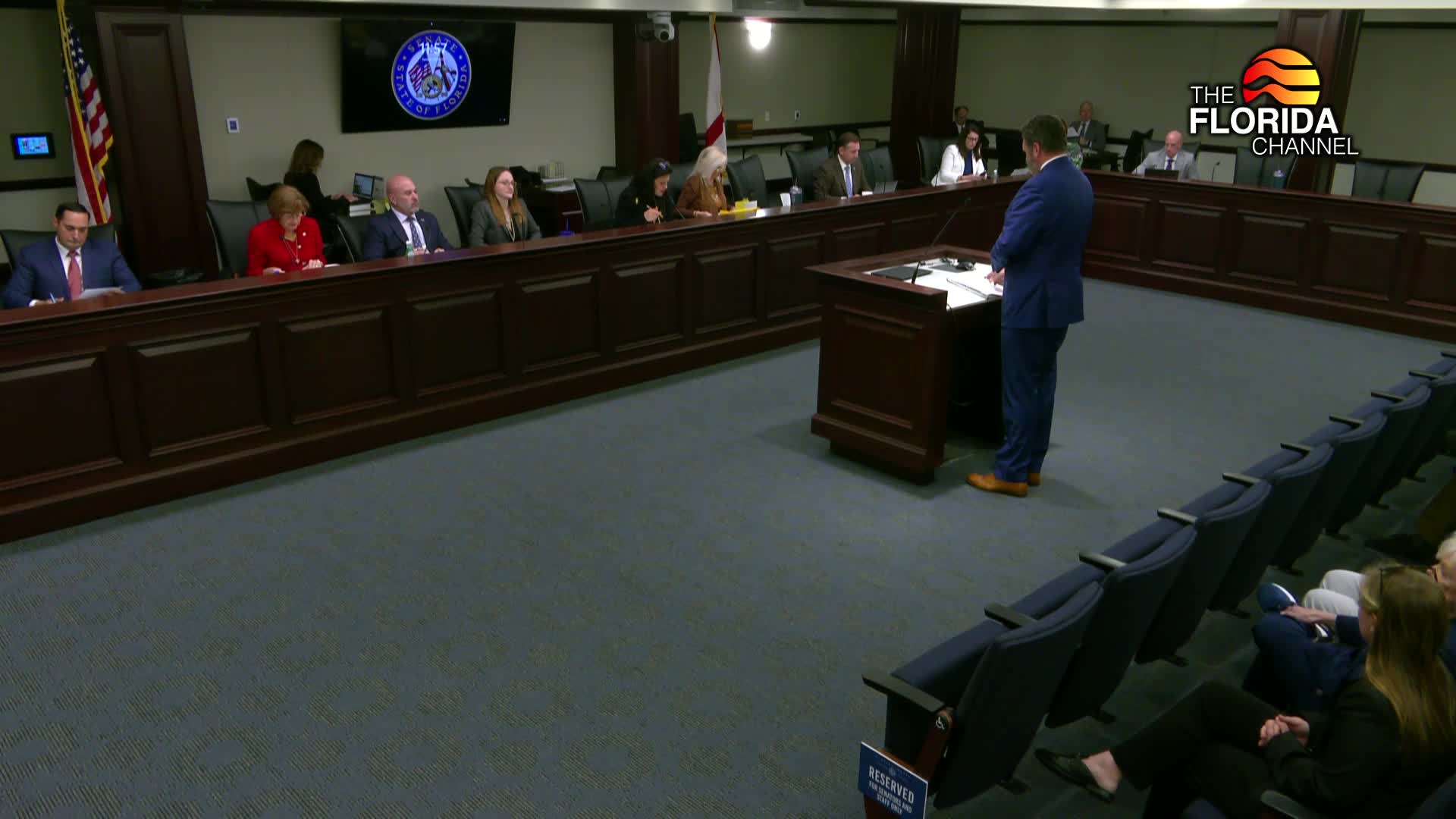
Panel backs anchoring-limit changes for populous counties; boaters and safety groups urge caution
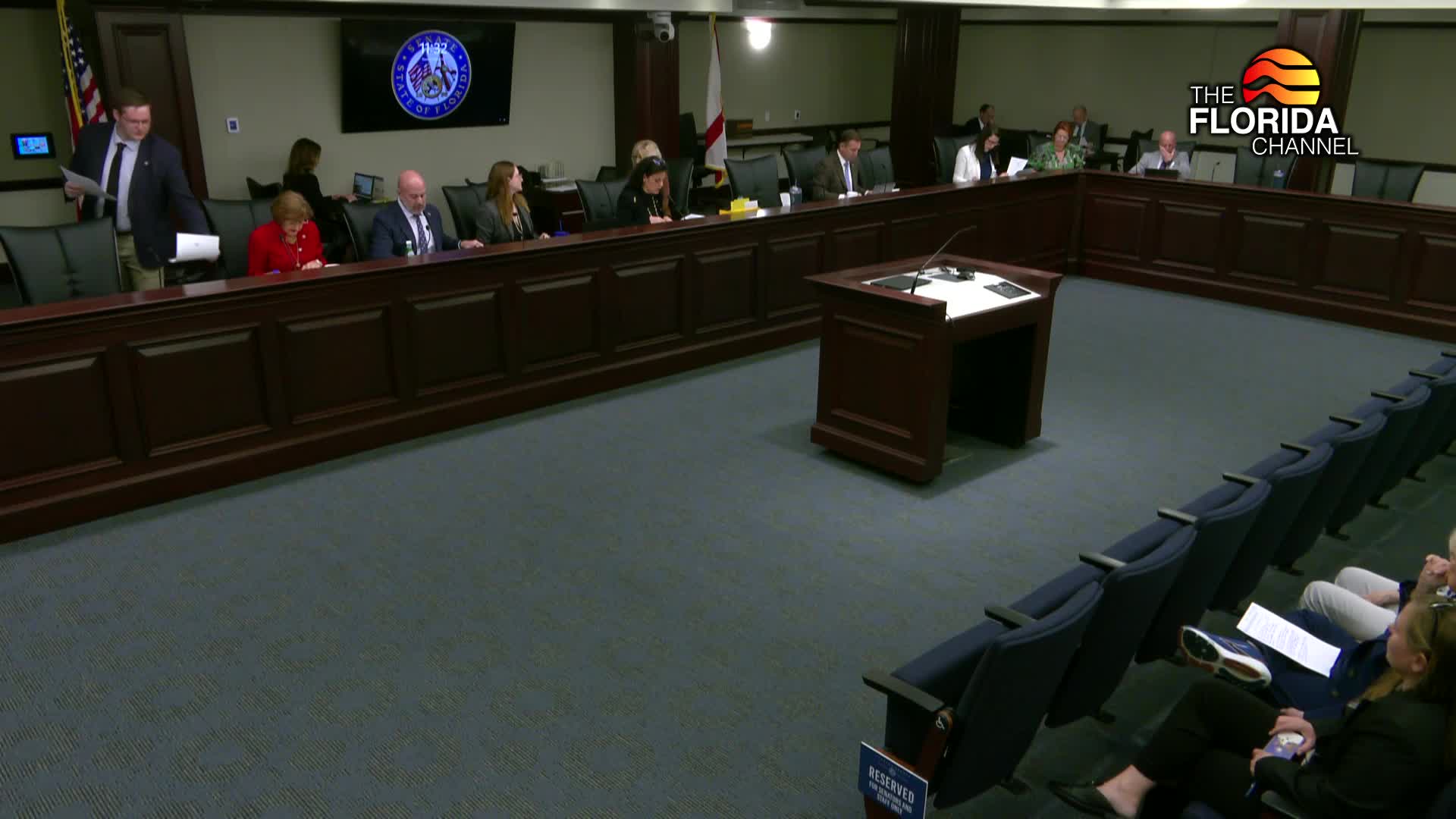
Committee narrows bill to block incinerators near a Broward Everglades impoundment; Miramar mayor and county officials testify
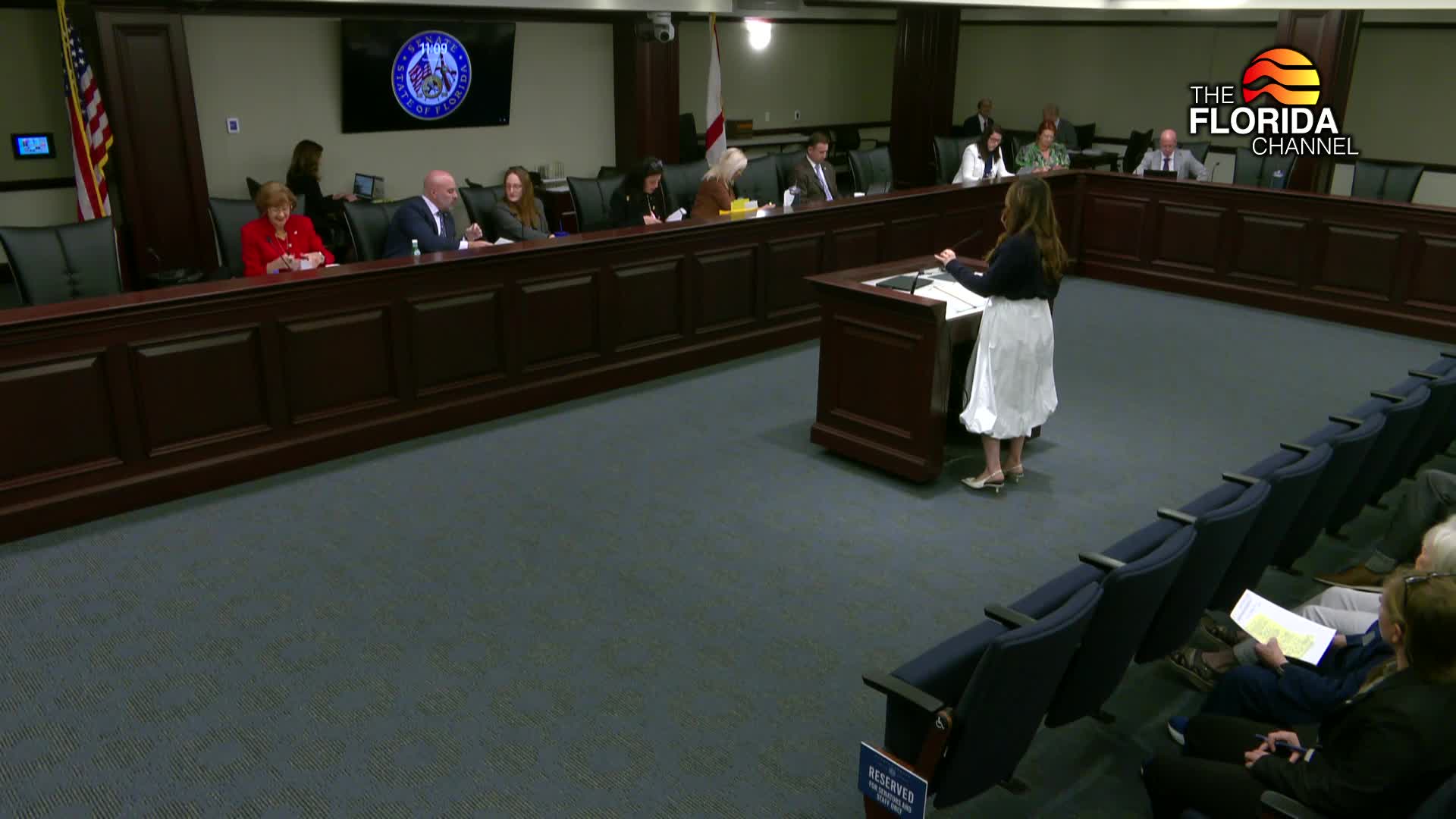
Senate panel approves bill naming American flamingo state bird and Florida scrub jay state songbird after large student turnout
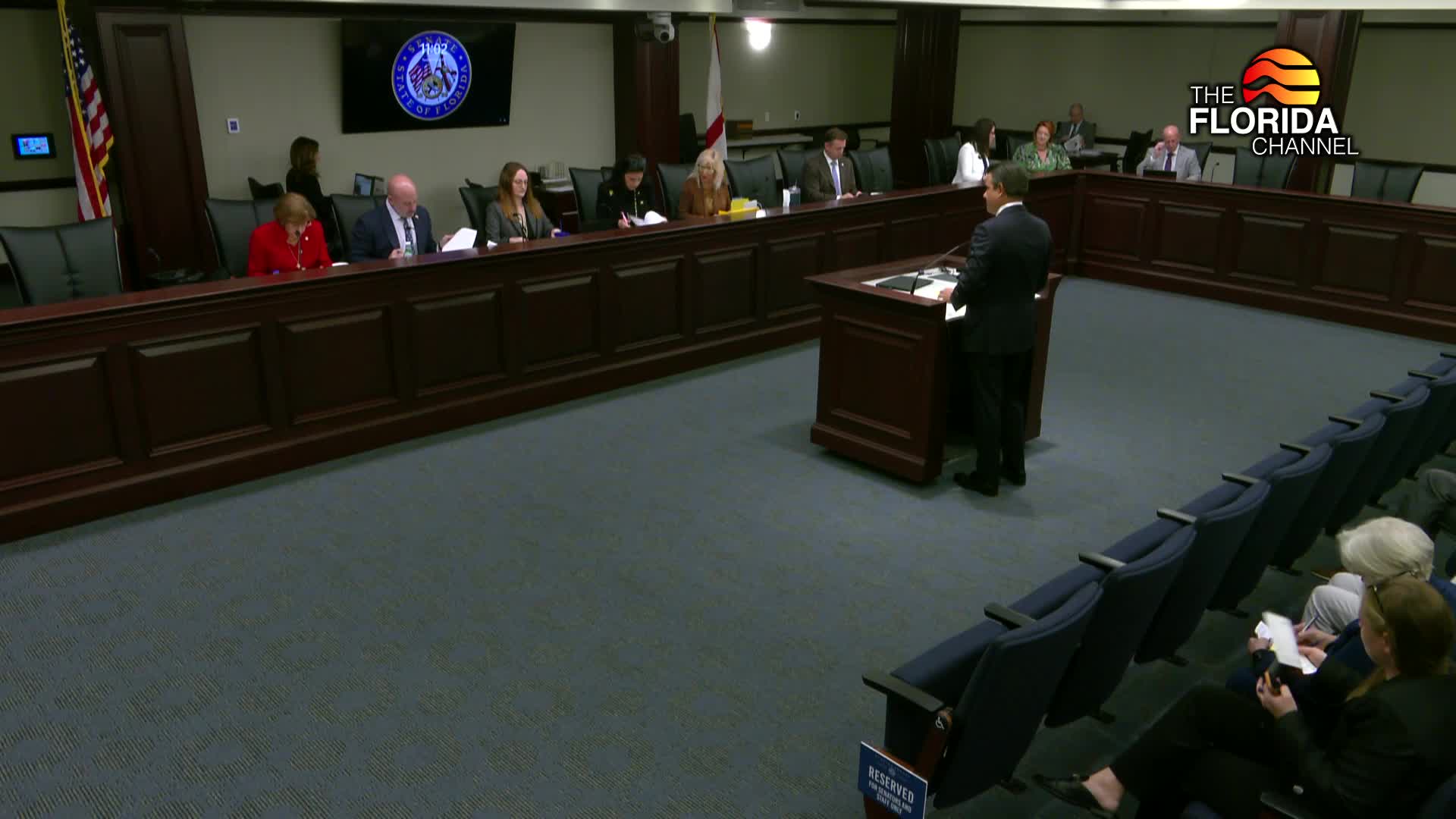
Committee roundup: key environment bills reported favorably (committee roll calls)
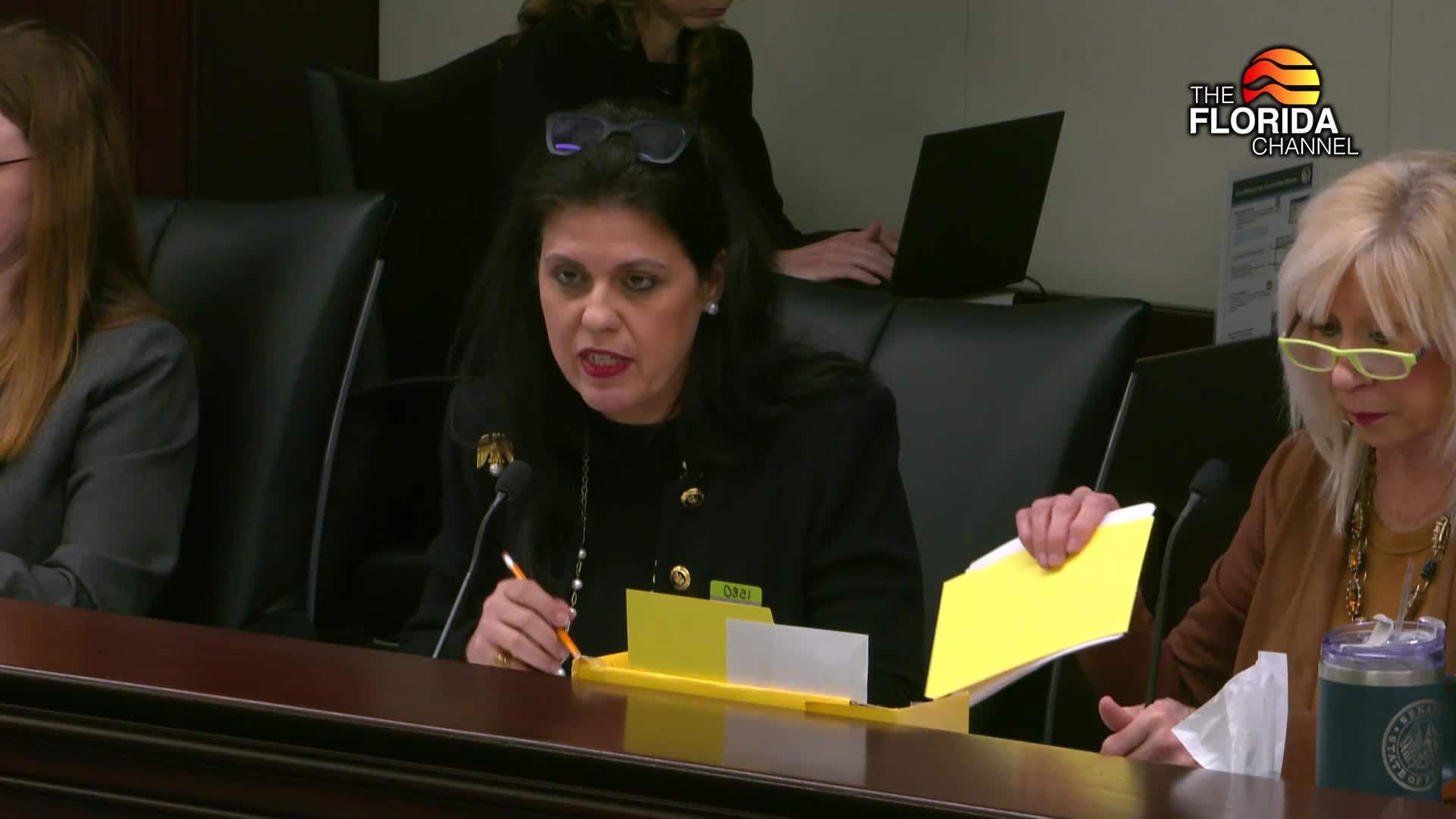
Committee approves narrow strict‑liability defense for former phosphate‑mine landowners after amendment clarifies payment for surveys
